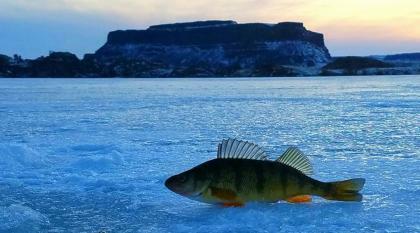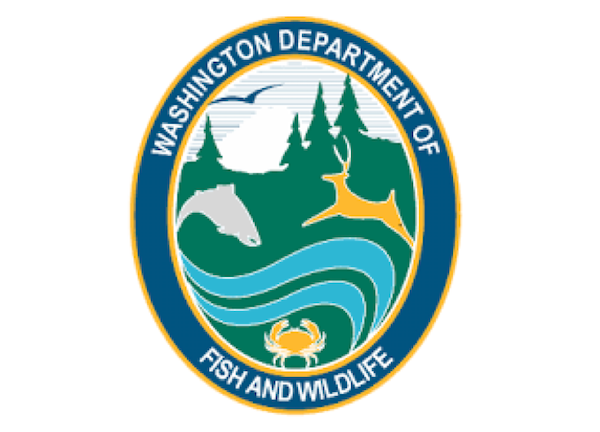WDFW approves seven days of razor clam digging during evening low tides beginning Feb. 26

by WA Department of Fish & Wildlife Staff
2-22-2022
Website
OLYMPIA – More razor clam digs are planned on coastal beaches as shellfish managers with the Washington Department of Fish and Wildlife (WDFW) today confirmed the next round of digging can proceed as planned from Feb. 26 through March 4.
"Exceptionally abundant razor clam populations continue to provide good digging for a lot of diggers,” said Dan Ayres, WDFW coastal shellfish manager. "With this weekend’s afternoon low tides, there is no excuse to not to get out for some great razor clamming."
Diggers are reminded the daily limit has reverted to the standard 15 razor clams. Under state law, a daily limit consists of the first 15 clams dug regardless of size or condition, and each digger’s clams must be kept in a separate container.
Shellfish managers confirmed the following digs during evening low tides will proceed as scheduled, after marine toxin results from the Washington Department of Health showed razor clams were safe to eat:
- Feb. 26, Saturday, 3:18 P.M.; 0.0 feet; Long Beach, Twin Harbors, Copalis
- Feb. 27, Sunday, 4:16 P.M.; -0.4 feet; Long Beach, Mocrocks
- Feb. 28, Monday, 5:06 P.M.; -0.8 feet; Long Beach
- March 1, Tuesday, 5:50 PM; -0.9 feet; Long Beach, Twin Harbors, Mocrocks
- March 2, Wednesday, 6:30 PM; -0.8 feet; Long Beach, Twin Harbors, Copalis
- March 3, Thursday, 7:07 PM; -0.5 feet; Long Beach, Twin Harbors, Mocrocks
- March 4, Friday, 7:42 PM 0.0 feet; Long Beach, Twin Harbors, Copalis
Details on these and future digs can be found at wdfw.wa.gov/razorclams.
Not all beaches are open for every dig, so diggers are encouraged to make sure their intended destination is open before heading out. Diggers should also continue to respect coastal communities and residents by following local and state health guidelines.
The most successful digging occurs between one and two hours before the listed time of low tide. No digging is allowed before noon during digs when low tide occurs in the afternoon or evening. Details on these and future digs can be found at wdfw.wa.gov/fishing/shellfishing-regulations/razor-clams.
With the spring fast approaching, Washingtonians should consider purchasing 2022-2023 recreational hunting and fishing licenses before current licenses expire after March 31. Anyone gathering clams in April will need a new 2022-2023 license to participate. All diggers age 15 or older must have an applicable fishing license to harvest razor clams on any beach.
All diggers age 15 or older must have an applicable fishing license to harvest razor clams on any beach. Licenses, ranging from a three-day razor clam license to an annual combination fishing license or a Fish Washington license, are available from WDFW’s licensing website at fishhunt.dfw.wa.gov/login, and from hundreds of license vendors around the state. WDFW recommends buying your license before visiting coastal beach communities for this razor clam season.
The following tentative spring dig dates were also announced last week, along with low tides and beaches. All dates are tentative pending final marine toxin testing, which usually occurs about a week or less prior to each set of openings.
Digging is not allowed before noon for March digs where low tide occurs in the evening:
- March 1, Tuesday, 5:50 PM; -0.9 feet; Long Beach, Twin Harbors, Mocrocks
- March 2, Wednesday, 6:30 PM; -0.8 feet; Long Beach, Twin Harbors, Copalis
- March 3, Thursday, 7:07 PM; -0.5 feet; Long Beach, Twin Harbors, Mocrocks
- March 4, Friday, 7:42 PM 0.0 feet; Long Beach, Twin Harbors, Copalis
- March 16, Wednesday, 6:35 PM; 0.0 feet; Long Beach, Twin Harbors, Mocrocks
- March 17, Thursday, 7:08 PM; 0.0 feet; Long Beach, Twin Harbors, Copalis
- March 18, Friday, 7:41 PM; +0.2 feet; Long Beach, Twin Harbors, Mocrocks (Ocean Shores Razor Clam Festival)
- March 19, Saturday, 8:14 PM; +0.5 feet; Long Beach, Twin Harbors, Copalis (Ocean Shores Razor Clam Festival)
Digging is not allowed after noon for the remainder of March and April digs—listed below—where low tide occurs in the morning:
- March 20, Sunday, 8:46 AM; +0.2 feet; Long Beach, Twin Harbors, Mocrocks (Ocean Shores Razor Clam Festival)
- March 21, Monday, 9:30 AM; 0.0 feet; Long Beach, Twin Harbors, Copalis
- March 22, Tuesday, 10:18 AM; -0.1 feet; Long Beach, Twin Harbors, Mocrocks
- April 1, Friday, 7:36 AM; +0.5 feet; Long Beach, Twin Harbors
- April 2, Saturday, 8:07 AM; 0.0 feet; Long Beach, Twin Harbors, Copalis
- April 3, Sunday, 8:45 AM; -0.1 feet; Long Beach, Twin Harbors, Mocrocks
- April 4, Monday, 9:23 AM; 0.0 feet; Long Beach, Twin Harbors, Copalis
- April 5, Tuesday, 10:01 AM; +0.2 feet; Long Beach, Twin Harbors, Mocrocks
- April 6, Wednesday, 10:43 AM; +0.5 feet; Long Beach, Twin Harbors, Copalis
- April 16, Saturday, 7:03 AM; -0.2 feet; Long Beach, Twin Harbors, Copalis (Long Beach Razor Clam Festival)
- April 17, Sunday, 7:45 AM; -0.8 feet; Long Beach, Twin Harbors, Mocrocks (Long Beach Razor Clam Festival)
- April 18, Monday, 8:28 AM; -1.2 feet; Long Beach, Twin Harbors, Copalis
- April 19, Tuesday, 9:14 AM; -1.3 feet; Long Beach, Twin Harbors, Mocrocks
- April 20, Wednesday, 10:04 AM; -1.2 feet; Long Beach, Twin Harbors, Copalis
- April 21, Thursday, 10:59 AM; -0.9 feet; Long Beach, Twin Harbors, Mocrocks
- April 29, Friday, 6:31 AM; -0.1 feet; Long Beach, Twin Harbors, Copalis
- April 30, Saturday, 7:10 AM; -0.5 feet; Long Beach, Twin Harbors, Mocrocks
To learn more about razor clam abundance, population densities at various beaches, and how seasons are set, visit wdfw.wa.gov/fishing/shellfishing-regulations/razor-clams#management.
The Washington Department of Fish and Wildlife works to preserve, protect, and perpetuate fish, wildlife and ecosystems while providing sustainable fish and wildlife recreational and commercial opportunities.
More Reports

2-22-2022
Fishing doesn’t end just because winter starts. Many people in eastern and north central Washington take advantage of the area’s...... Read More

2-18-2022
OLYMPIA – Fishery managers with Puget Sound treaty tribes and the Washington Department Fish and Wildlife (WDFW) on Thursday submitted...... Read More
